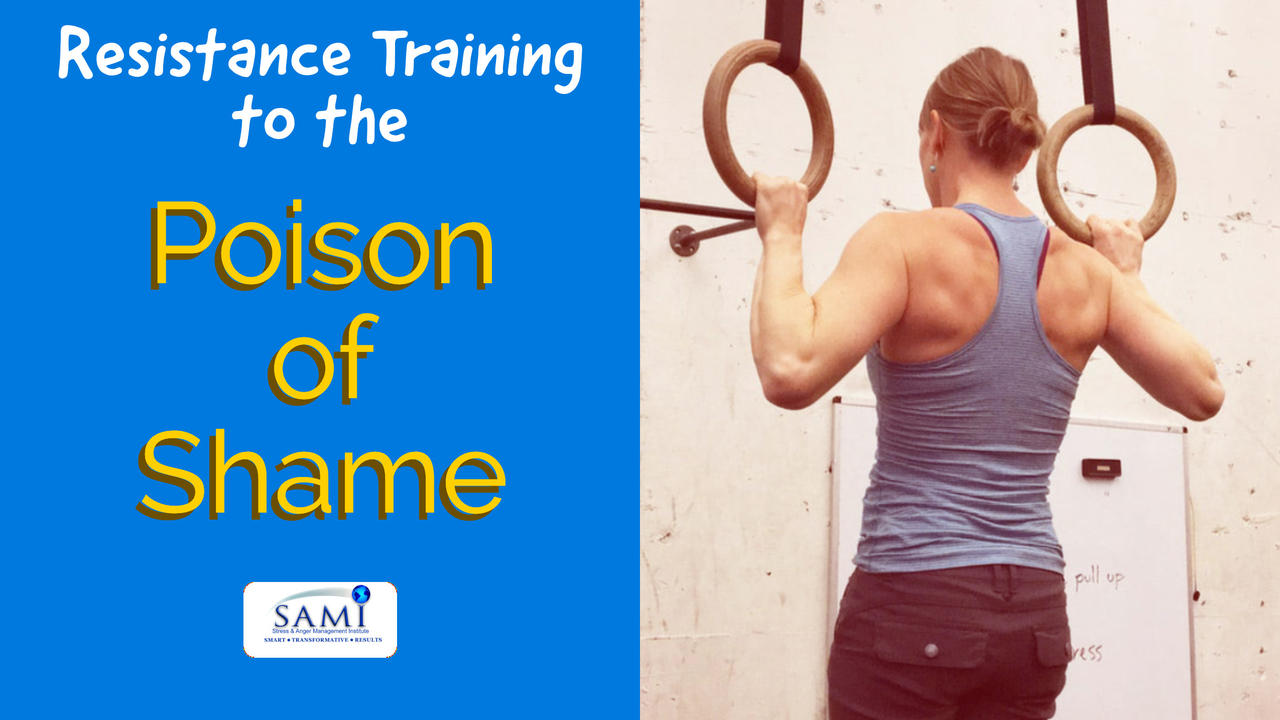Resistance Training to the Poison of Shame - Autoimmune Disease Awareness

Every time Grace, a loving single parent, took time for herself, she returned
home with an awful sinking feeling. She didn’t understand why. “I had so much fun, and I'm proud of myself for making time for myself,” Grace thought to herself. Rather than expand from the joyous experience, or receive the delight and enthusiasm of her self-care, she contracted.
Grace’s contraction comes from the experience of shame, a poison that keeps us from experiencing our own joy and disconnects us from the aliveness within and around us. Whereas guilt is associated with a particular memory or situation and having done something wrong, the feeling of shame is about being wrong at our core. It is a debilitating feeling we have about ourselves that comes from a core belief that we are fundamentally flawed.
Sources of Shame
The poison that is the root of shame is absorbed in early childhood. As a
result of not being seen and loved for who we are, we develop the belief that we are unlovable and that something is inherently wrong with us.
Perhaps we were told outright that we were bad, stupid or undeserving, or maybe we were physically abused, from which we concluded we had no value. The thing we may have done “wrong” might have been simply expressing our joyful authenticity. Like Grace, we learned that it's not safe to be who we truly are in our experience of self—a sense of power comes from “knowing” that it's because we are inadequate. If our perceived "defectiveness" is causing the results we see, we believe there is always something we can do about it. We can do things “right.” Clinging to the belief that our inadequacy is the cause of other people’s behavior towards us prevents us from accepting our inherent helplessness over others’ feelings and actions. When we begin to understand that all people at all times are merely exercising their free will and it has nothing to do with us, healing can begin.
The Antidote
By taking specific steps toward healing, you can eradicate the poison of shame:
- The first step is to identify your shame, to become aware of how it
feels in your body. - Once you recognize the feeling, notice shame every time it arises and allow yourself to experience it fully; name it and feel it.
- Be willing to express your authentic feelings—including your joy and sense of pure power. Reverse the shutting down effect shame causes
by permitting yourself to fully “show up.” - Accept that other people’s feelings have nothing to do with you. With
compassion, choose to no longer take their behavior personally. - Practice forgiveness—for those whose conduct led to you feeling
shame, and for yourself.
If you’d like help releasing the false belief that you are inadequate, letting go of toxic relationships, or managing chronic stress or toxic anger productively reach out for support and begin the change process today.
March is National Autoimmune Disease Awareness Month, and according to the American Autoimmune Related Diseases Association, 50 million Americans have an autoimmune disease. Studies confirm that inflammation is a common denominator among autoimmune diseases and that stress causes inflammation. Negative stressors include work overload, relationship conflicts, no peer support, illness, and poverty. Trauma heightens the body's stress response. Dr. Vincent Felliti, a trauma expert, confirms that traumatic childhood experiences can contribute to disease.
A holistic approach includes acknowledging how lifestyle, history, and emotions affect the immune system and therefore the disease process.
For many, acknowledging the uniqueness of the whole body helps the healing process to begin. Rather than approaching physical symptoms as separate from lifestyle and emotions shifting focus toward addressing both physical and emotional aspect can create a balance.
Anutza Bellissimo suggests removing chronic stress triggers, toxic relationships, reconnecting to yourself through self-regulation training and replenishing energy through SAMI lifestyle skills. Schedule a consultation to create your personalized stress or anger management plan, designed to strengthen the mind/body/spirit connection.


